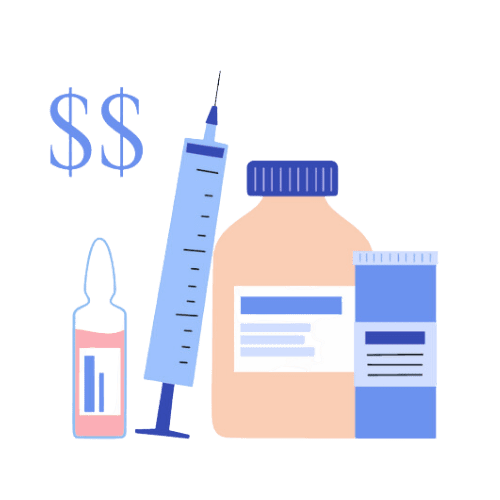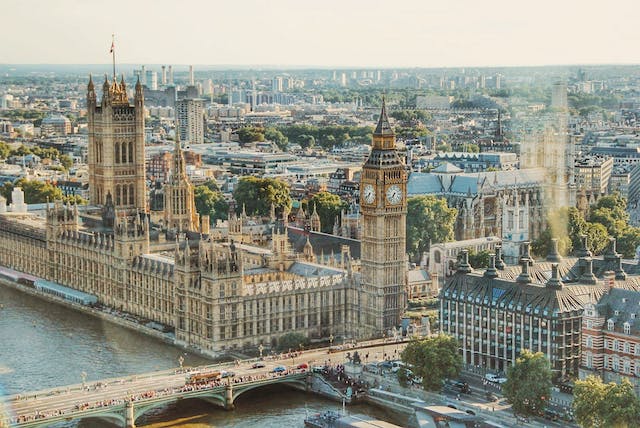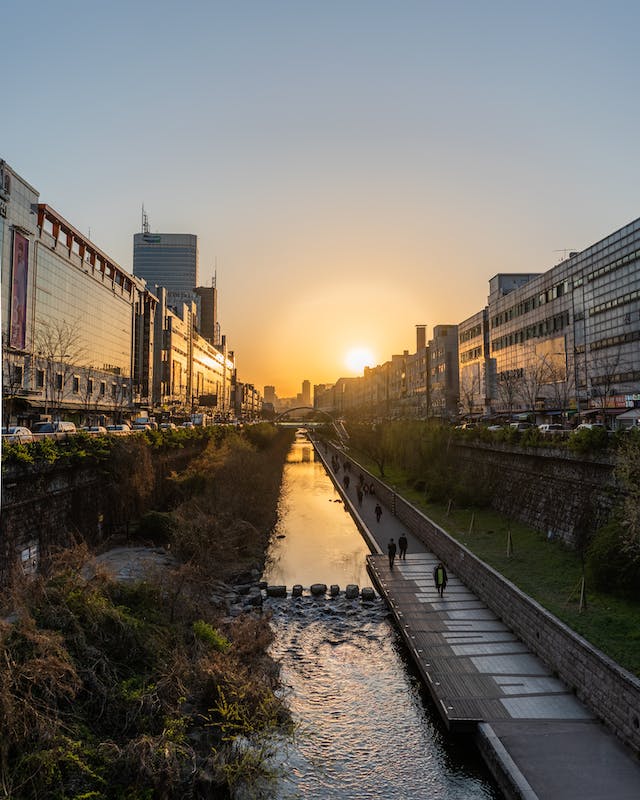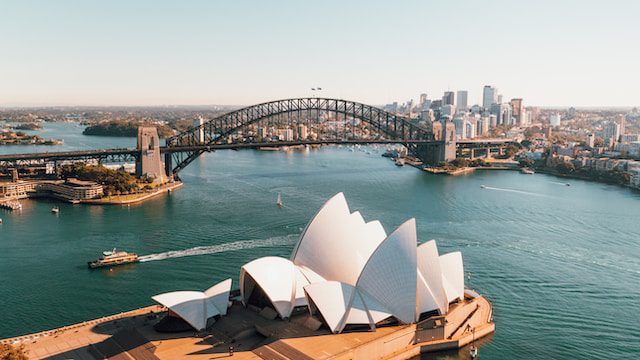Egg Freezing & IVF in Mongolia
At Zora Health, you are our top priority. We’re here to guide you through every step of your egg freezing or IVF journey — helping you understand your options, and make confident, informed decisions about your care and costs.
Egg freezing, also known as mature oocyte cryopreservation, is a method used to save women’s ability to get pregnant in the future.
In vitro fertilisation (IVF) is a procedure used to help with fertility, prevent genetic problems and assist with the conception of a child

Spread out the cost of treatment over 12, 24, and 36 months to avoid large upfront payments and reduce financial burden.
LEARN MORE
Accessible & affordable fertility care in Mongolia
Egg Freezing and IVF in Mongolia
To help women from other countries have higher chances of success in having a child, Mongolian IVF clinics offer a wide range of gynecology and fertility preservation services such as in-vitro fertilisation (IVF), egg freezing, ovarian stimulation, assisted hatching, blastocyst transfer, embryo freezing, pre-genetic diagnosis (PGD), and surrogate mother programs. IVF costs USD 2,560 – 2,700 and egg freezing costs an average of USD 7,115 in Mongolia.
All About Mongolia for Medical Tourists
Primary health care (PHC) in Mongolia is provided for community-level priority health problems. The government provides free PHC treatments to the society in soum (administrative divisions) and family health centres. The World Health Organization noted that the Mongolian government is making progress in covering universal healthcare costs, improving services, accessing advanced technology, and delivering medical treatment to patients struggling with finances and who face geographical difficulties in accessing services. Mongolian administrative units organise these services differently depending on the location, whether rural or urban.
An international medical patient choosing Bumrungrad International Hospital can contact the staff directly to process referrals, airport transfers, visa invitation letters, follow-up appointments, and other medical travel needs. PlacidWay is another popular medical travel health provider. It has an all-inclusive medical tourism facilitator. It also works with renowned board-certified doctors, medical facilities, and research centres.
What To Do in Mongolia During Your Medical Vacation
Medical travellers who need help to conceive can also enjoy the cultural and geographical advantages of the country. You can ride a camel, take photos of wild animals, and see the sand dunes at Khugnu Tarna National Park and Ugii Lake. See the nomad camps and camel farms in Gorkhi-Terelj National Park. The Lake Khovsgol water is so clean that you can drink it without using a filtering system. Watch the hoofed ibexes and see the tribe culture of Tuvan nomads at Altai Tavan Bogd National Park.
There are also ancient petroglyphs to be seen here. Having received the UNESCO World Heritage Tag, Orkhon is the location of the Karakorum ruins, Xanada palaces, and frozen waterfalls. You can stay in a yurt if you plan to trek the knolls and ridges of Khustain Nuruu National Park for days. Among the activities available are seeing the rare Dzungarian horses and taking thrilling 4X4 rides.
People who seek medical treatment should observe Mongolian laws and safety advisories. For your safety, watch out for scammers like those pretending to be border officers. They would ask you for your travel insurance and if you have none, would try to extort money from you. Street vendors can also scam you with the prices of their wares. Avoid stray dogs because rabies is common. Petty theft can also occur so stay alert while sightseeing.
Mongolians live in yurts that they call ger. It is rude to knock on the ger door and to enter on the left side. Always open the ger's door flap with your right hand and enter on the right side. Avoid whistling, using your left hand to get food, rolling up your sleeves inside a ger, or walking in front of an elder. When visiting religious sites, do not take photos while there are ongoing meditation and prayer sessions. Ask first for permission before taking pictures and turn off the flash when given approval.
You will arrive at Chinggis Khaan International Airport. From there, regional travel can be reached through the network of domestic airports scattered around the country. If you already have city accommodations and your fertility clinic appointment, you can take a limousine service or taxi from the airport to take you there. The most common form of transportation is the bus. Fares are cheap and you can pay the driver directly. You must hire a jeep if you want to go to the countryside that is inaccessible by bus. Aside from buses and taxis, you can also rent a car.
A study about the prevalence and risk factors for infertility in four Mongolian regions stated that only 0.8% of Mongolians with infertility have sought and undergone IVF treatment. About 14.8% of those with infertility chose to receive hormone therapy. The study showed that the major risk factors common to infertile Mongolians are their age, living in rural areas, low educational attainment, obesity, alcohol drinking, and female reproductive health problems.
The official language is Mongolian. About 94% of the population speaks Mongolian. The other 6% speak Kazakh. Foreign languages spoken are English, Russian, and Korean.
Benefits of Doing Fertility Treatments in Mongolia
Two fertility clinics stand out in offering fertility treatment. One of these highly recommended human reproduction clinics is the Fertility Centre and IVF Clinic in Bumrungrad International Hospital. It helps patients identify and provide appropriate treatment for assisted reproductive problems. Professionals in reproduction are helmed by doctors and embryologists.
The clinic stated that 40% of infertility problems are caused by male reproductive disorders such as low sperm quantity and motility and sperm-carrying tubal blockages. To address male infertility, the clinic's assisted reproductive treatments include percutaneous epididymal sperm aspiration (PESA), testicular sperm extraction (TESE), and microsurgical epididymal sperm aspiration (MESA). Meanwhile, assisted reproductive techniques to help women get pregnant include in-vitro fertilization (IVF), ovarian stimulation, intrauterine insemination (IUI), intracytoplasmic sperm injection (ICSI), and pre-genetic diagnosis (PGD). Bumrungrad International Hospital's PGD treatments comply with The Medical Council of Thailand's ethical standards.
Another fertility treatment clinic for tourists who want to have children immediately is the Unimed International Hospital in Ulaanbaatar City. The IVF and fertility preservation clinic offers assisted hatching, blastocyst transfer, embryo freezing, sperm freezing, intrauterine insemination, ICSI, IVF, surrogate mother programs, and testicular biopsy among its assisted reproductive services.
Costs to Consider
At clinics, such as the Fertility Centre and IVF Clinic in Bumrungrad International Hospital, IVF costs range from MNT 8,893,260 to 9,387,840 (USD 2,560 – 2,700) and egg freezing costs from MNT 24,709,475 (USD 7,115). The procedure to help conceive includes frozen embryo transfer and pregnancy tests.
Other Considerations Before Starting Your Fertility Treatment in Mongolia
There is a lack of information regarding ART regulations for surrogacy, egg freezing for social reasons, IVF, ICSI, intrauterine insemination, testicular sperm extraction, and other fertility treatments in Mongolia.
Why Choose Mongolia for Your Fertility Treatment
Did you know that according to Mongolian fertility specialists, 40% of infertility problems are caused by male reproductive disorders such as low sperm quantity and motility and sperm-carrying tubal blockages? Male patients from other countries who are struggling with these problems can go to professional fertility clinics in Mongolia to receive assisted reproductive treatments such as testicular biopsy, sperm freezing, percutaneous epididymal sperm aspiration (PESA), testicular sperm extraction (TESE), and microsurgical epididymal sperm aspiration (MESA).
After the semen is collected, their partners can receive it through the processes of intrauterine insemination (IUI) or intracytoplasmic sperm injection (ICSI) to have higher chances of success in getting pregnant. After undergoing the above procedures or IVF, egg freezing for social reasons, egg retrieval, and other infertility treatments, patients can maximise their stay in Mongolia by riding a camel, seeing the sand dunes, staying in a yurt for days of trekking, or taking thrilling 4X4 rides.
Ready to do your egg freezing & IVF journey in Mongolia?
Meet Our Network of
Experienced Fertility Specialists

You deserve the very best.
That's why we’re here to support you — whenever you need it.
1
Personalised Care Navigation
Expert guidance to choose the right care provider and navigate the process, costs, & regulations.
2
Seamless, All-in-One Care
Consultations, diagnostics, telehealth, education, & treatment referrals are available on one platform.
3
Trusted, Reliable Resources
Gain clarity & confidence with verified information. Save time, reduce stress, & eliminate endless research.
Global reach, unparalleled service

"Clear pricing - clarity & support from start to end."
"I love Zora Health for their simple, transparent pricing. It was a relief not to worry about unexpected fees or hidden costs. They made the entire process stress-free and easy to understand, which allowed my husband and I to focus on what mattered most - my family's future."
Syarifah, 27 & Indra, 29

"I couldn't believe that I can choose my own doctor and enjoy extra benefits for the same price."
"I had a preferred doctor overseas that my girl friends recommended. He is part of Zora’s clinic network, but I was interested in Zora’s support and perks. After speaking to Zora, they assured me I wouldn’t pay extra. Zora managed the whole process - from personalised guidance to answering my queries about legalities."
Nina, 32, Single

"The financing options lifted a huge weight off my shoulders."
"Zora’s instalment plans were a true lifesaver. I was so grateful for their flexible and affordable options. I have been thinking about preserving my eggs as a form of “insurance” but didn’t want to pay a big lump sum upfront as I am saving for a house. The instalment plan helps me manage my finances better.”
Elaine, 32

"I never felt alone in my fertility journey."
"After failing previously, we were very anxious and were not sure what to expect. They guided us through the process and cared for us every step of the way. My treatment at the clinic was long, and sometimes it was emotionally draining, but having a fertility coach made us feel better and more prepared. As busy professionals, we appreciate the convenience of scheduling appointments through Zora. I have recommended Zora to all our friends."










